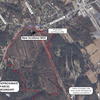New Scotland starts conversation about housing, refines bill on solar batteries
NEW SCOTLAND — New Scotland is wondering whether it should get on board with the governor’s attempt to increase local housing stock.
During the town board’s Feb. 14 meeting, Councilman Dan Leinung said Governor Kathy Hochul in last year’s budget tried to mandate that all upstate municipalities increase their housing stock by 1 percent over a five-year period; downstate cities, towns, and villages were to increase housing by 5 percent.
Leinung said, “I think we actually ran the numbers and [New Scotland] would have met that with the development already in town.”
But the governor’s proposal got rejected by the legislature.
“Generally, people don’t like mandates,” Leinung said, being told “how many houses they have to build, or homes they have to build.”
This time around, the governor is attempting a volunteer approach to increase housing.
“It’s called the pro-housing communities initiative,” Leinung said. “It’s voluntary.”
Leinung said municipalities can opt into the program by passing a resolution stating their commitment to further evaluating housing development in their community.
To qualify for the governor’s voluntary program, an upstate community, in the past year, must have issued permits equal to one-third of 1 percent (.33) percent of the municipality’s total housing stock or 1 percent over the past three years.
The benefit of voluntarily opting in, Leinung said, is that a municipality’s application will receive “extra points” when applying for certain economic development programs — like the state’s downtown revitalization initiative or its New York Forward program, among others — “you’re given, essentially, priority for those funds,” he said.
Leinung said he thought the town’s involvement in the program needed some more examination, while noting “there’s not any requirement that you necessarily update your zoning or change your zoning.” And if, in fact, that were the case, New Scotland would likely already meet some of the requirements due to the update of its hamlet zoning law.
Leinung’s introductory discussion about increasing housing stock had an air of prescience as later in the meeting resident Cheryl Domanico inquired about housing for New Scotland’s elderly inhabitants who are “unable to keep their houses.”
“Does New Scotland have any plans for senior housing,” Domanico asked.
The town does have 22 units of senior and handicapped housing located in Feura Bush, administered by the Albany County Rural Housing Alliance.
Supervisor Douglas LaGrange said, “A short answer is: That was the purpose of Stone Creek Estates down the road here,” but he was quickly cut-off by Domanico who pointed out how expensive the specialty housing had become.
“Oh, the half-a-million [dollar] ones,” she said.
LaGrange acknowledged the sale price of some Stone Creek Estate homes had “gone up close to that, [but] they started out at $300,000.”
LaGrange then noted the long-in-the-making housing project off of New Scotland Road, near town hall, had a senior-housing element. “That’s going to have condominiums,” he said. “I don’t know what the price range is, but they’re fairly — I would call them small-ish.”
He then said he hoped in the near future, Ron Kay, the developer of 20 acres on the corner of routes 85 and 85A would be proposing a project that would “at the very least” have “senior apartments and stuff like that as part of the project.”
New solar reg
The board has for some time been looking to regulate large-scale battery storage systems in town, and during its Feb. 14 meeting, the latest tweak was presented to board members.
First presented in November, proposed Local Law E of 2023 looks to provide a framework “for the designation of properties suitable for the location, construction, and operation of battery energy storage systems,” which are a shipping-container-sized way to stockpile renewable energy.
The law defines a battery energy storage system as “one or more devices, assembled together, capable of storing energy in order to supply electrical energy at a future time,” but is not a “stand-alone 12-volt car battery, an electric motor vehicle, or a rechargeable battery for household appliances, or lawn equipment.”
The initial bill classified a battery energy storage system as either a Tier 1 or Tier 2 system; the latest update offers a Tier 3 classification.
During the Feb. 14 meeting, Leinung said the planning board had some suggestions about the proposed law, “specifically, better delineation between residential use, [like] ones that would be in your basement or on your house or in your house or next to your house, more like a generator.”
Leinung said, after discussing the storage systems with the town’s building inspector, “we kind of created three tiers.”
Tier 1, Leinung said, is a single residential system. It offers an aggregate energy capacity of up to 100 kilowatt-hours.
A kilowatt-hour is a unit of measurement that signifies the amount of energy required to keep a device consuming one kilowatt, or 1,000 watts, running for one hour.
Tier 2 “is essentially if you have one or two of these systems on a site,” Leinung said, “those would be allowed anywhere in the town.”
Tier 3 defines the “really large” systems, Leinung said. “It would essentially be more than two or three of these [storage systems] together,” and be located either in the industrial zone or within 500 feet of it.
The board didn’t take any action on the proposed law because some members felt it was too restrictive. The proposal will be sent around again to various boards for input and before it eventually comes back to the town board for an up-or-down vote.


